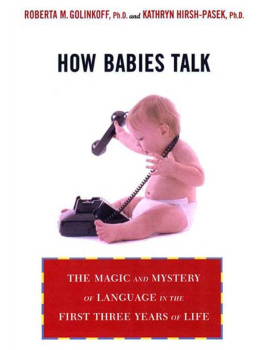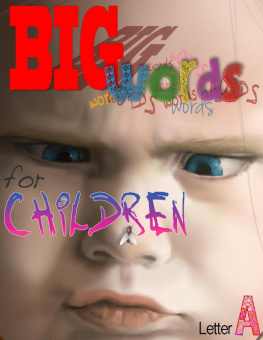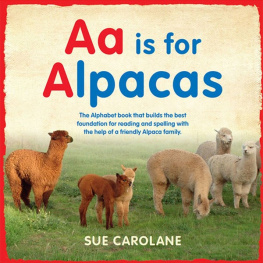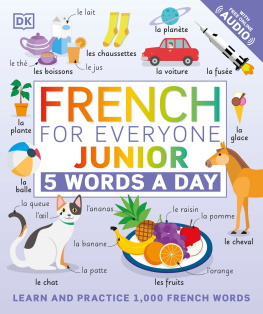All rights reserved, including the right of reproduction in whole or in part in any form.
Excerpt from Atoms of Language copyright 2001 by Mark C. Baker.
Reprinted by permission of Basic Books, a member of Perseus Books, L.L.C.
Use of the Wug drawing by permission of Jean Berko Gleason.
SCRIBNER and design are trademarks of Macmillan Library Reference USA, Inc., used under license by Simon & Schuster, the publisher of this work.
Yang, Charles D.
The infinite gift : how children learn and unlearn the languages of the world / Charles Yang.
p. cm.
Includes bibliographical references and index. 1. Language acquisition. I. Title.
Chapter 1
The Greatest Intellectual Feat
Chromosomes. Sex. Grasshoppers. Pick me up, Mommy.
This is an odd list, except in the eye of evolution. For in the major developments in the history of life, the ability to say, Pick me up, Mommy features prominently along with the emergence of genes, sexual reproduction, and multicellular organisms. On a smaller but no less wondrous scale, the ability to speak opens one mind to another. Babies announce their arrival with a loud cry, but it is their first words that launch the journey of a lifetime:
Kitty.
Big drum.
Drink tea.
This is the miracle of language, the ability to arrange sounds into infinitely many ways to convey infinitely varied meanings. Language is what we use to tell stories, transmit knowledge, and build social bonds. It comforts, tickles, excites, and destroys. Every society has language, and somehow we all learn a language in the first few years of our lives, a process that has been repeated for as long as humans have been around. Unlike swimming, using Microsoft Windows, or making the perfect lemon soufflwhich some of us never manage to dolearning a language is a task we can all take for granted.
Although every form of life is a testament to the power of evolution, language is an achievement of humans, and humans alone. The talents for cooperative hunting, tool making, and having sex for fun, once thought to be unique to us, have all been found in other species. which makes it a lastingand perhaps the lastgrip for our anthropocentric arrogance. The centrality of language to human nature is what prompted the great French thinker Ren Descartes to separate men from beasts:
It is a very remarkable fact that there are none so depraved and stupid, without even excepting idiots, that they cannot arrange different words together, forming of them a statement by which they make known their thoughts; while, on the other hand, there is no other animal, however perfect and fortunately circumstanced it may be, which can do the same.
Just how do we do this?
My son, Russell, had just turned three when I started writing this book. A medium-sized newborn, he soon shot off the growth charts that now populate parenting books. At three, he was wearing size five. However, Russell was rarely mistaken for a five-year-old. When he ran, he still waddled. Although he could throw, he couldnt catch. And he still couldnt tie his shoes. Children develop along a fairly consistent schedule, which leaves landmarks of physiological attributes and abilities. If you watched Russell in the playground, you would see just an unusually large specimen among three-year-olds.
But you didnt need to see him at the playground to know Russell was just three. Every waiter or waitress who greeted us was successful at guessing his age. As soon as Russell started insisting on pizza over anything else on the menu, his language betrayed his age. What his words sounded like and how they were put together are familiar to anyone who has been around kids.
Much like motor skills and head-to-body ratio, language also develops along a fairly consistent schedule. Out of the cries, coos, and laughs, all infants start babbling around the eighth month. Deaf babies babble toowith their hands. For children learning to speak English, the first words more or less coincide with the first birthday, and sentencesthe arrangement of wordsstart appearing when the child is a year and a half. By age three, most children know over a thousand words. They have command of many complex sentence structures, and can carry out fully independent and undeniably cute conversations with adults. And similar successive stages show up not only in English-speaking children, but also in those learning to talk in French, German, Chinese, and Swahili.
All children learn a language and they do so in similar ways. This, coupled with the fact that language learning occurs only in human youngsters, suggests that the root of language is in our biology. There is something in our genes that other species dont have, which is why a childs puppy, which grows up in the same household and hears the same sounds, never learns the language that the child learns.
Claiming language to be uniquely human may sound like a desperate attempt to assert our special place in nature: the latest count shows that chimpanzees share 96 percent of our genes. But every species is a unique product of biological evolution. Bats can find their way in the dark. Squirrels can hide and find thousands of nuts to pass the winter. Frogs are far better than us at catching mosquitoes. Biologically speaking, language is no more special than any of these abilities; what is special is the things that humans have done with language, including writing and reading books on how language is learned. Thus, Charles Darwin, the ultimate destroyer of our self-importance, didnt hesitate to remark that Man has an instinctive tendency to speak, as we see in the babble of young children, whilst no child has an instinctive tendency to bake, brew, or write. Furthermore, humans specialty for language is not at odds with biological evolution. As Darwin notes, the faculty of articulated speech does not in itself offer any insuperable objection to the belief that man has developed from some lower form.
But a biological basis cannot be all there is to language. Learning a language is not like walking, which is simply (and automatically) a matter of neuromuscular maturation, occurring around a childs first birthday. Again, in Darwins words, language is not a true instinct, for every language has to be learnt. After all, English children grow up speaking English, and Chinese children, Chinese. And for a lot of people, the most impressive thing about languages is how different they seem. This means that the neural hardware for language must be plastic ; it must leave space and possibilities to respond to the particular environment a child is born into, and to result in different organizations of the brain for different speakers. To put it simply, language learning requires both nature and nurture.
This book explains how nature and nurture work together to give children language. To develop such an explanation, one necessarily faces many obstacles that are not present in other disciplines; there can be no poking around in a childs brain, for instance. An indirect route of research must be sought when direct tampering with a childs nature or nurture is not possible. And a useful clue may be found just outside your bedroom window.

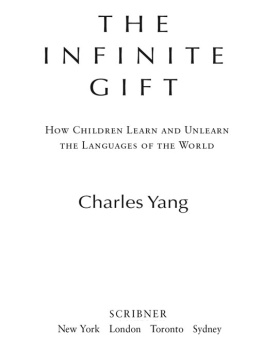


![Yang - The latehomecomer: [a Hmong family memoir]](/uploads/posts/book/165016/thumbs/yang-the-latehomecomer-a-hmong-family-memoir.jpg)





